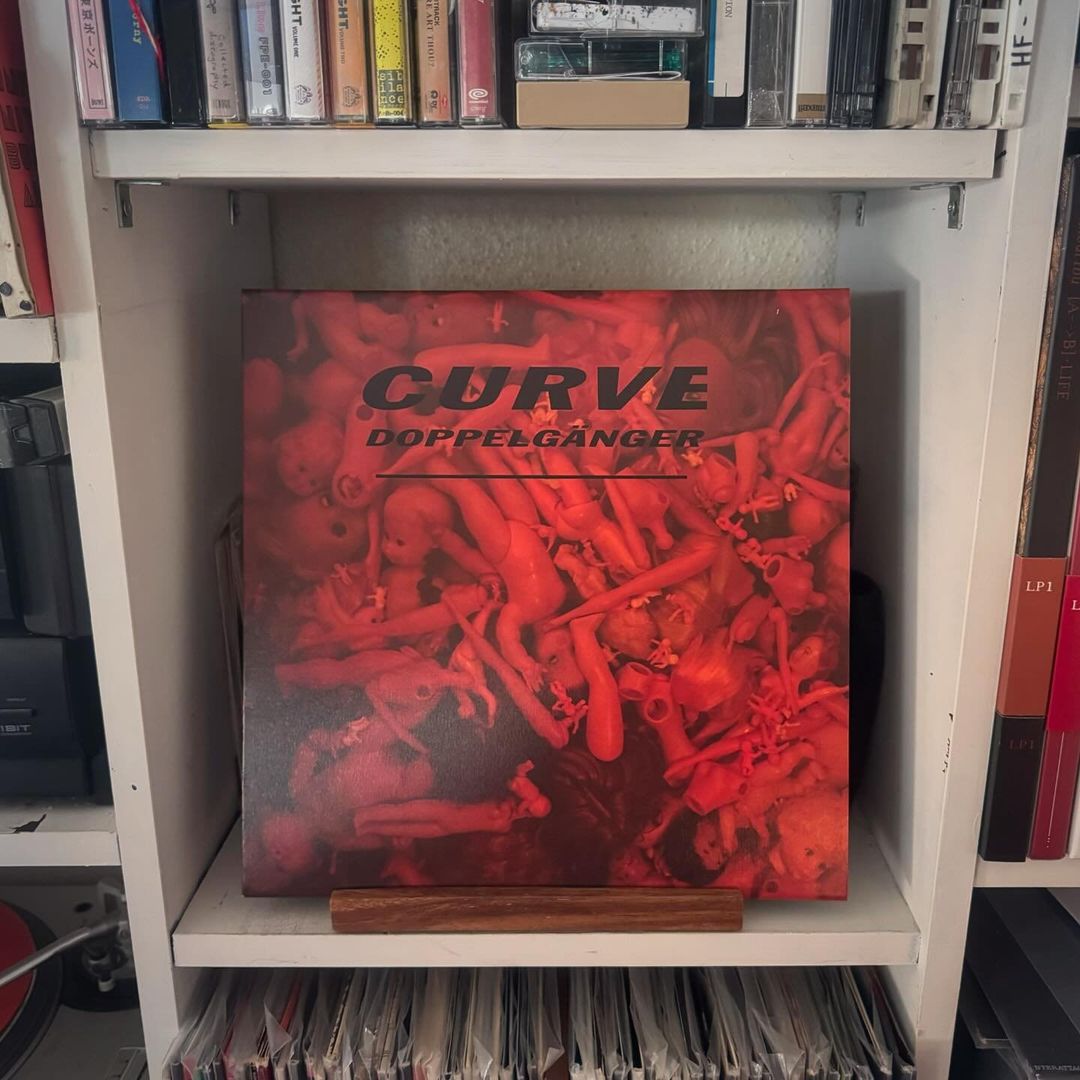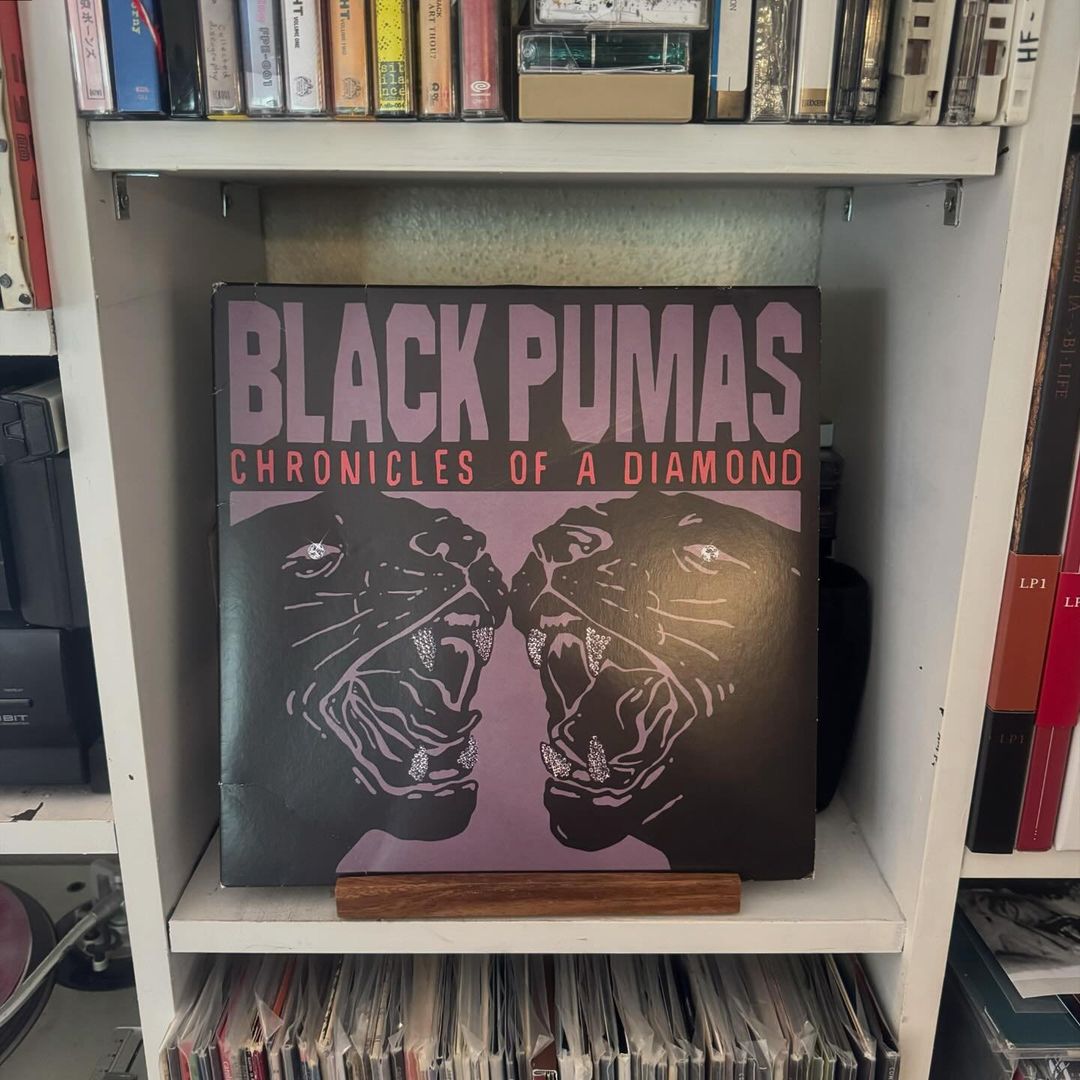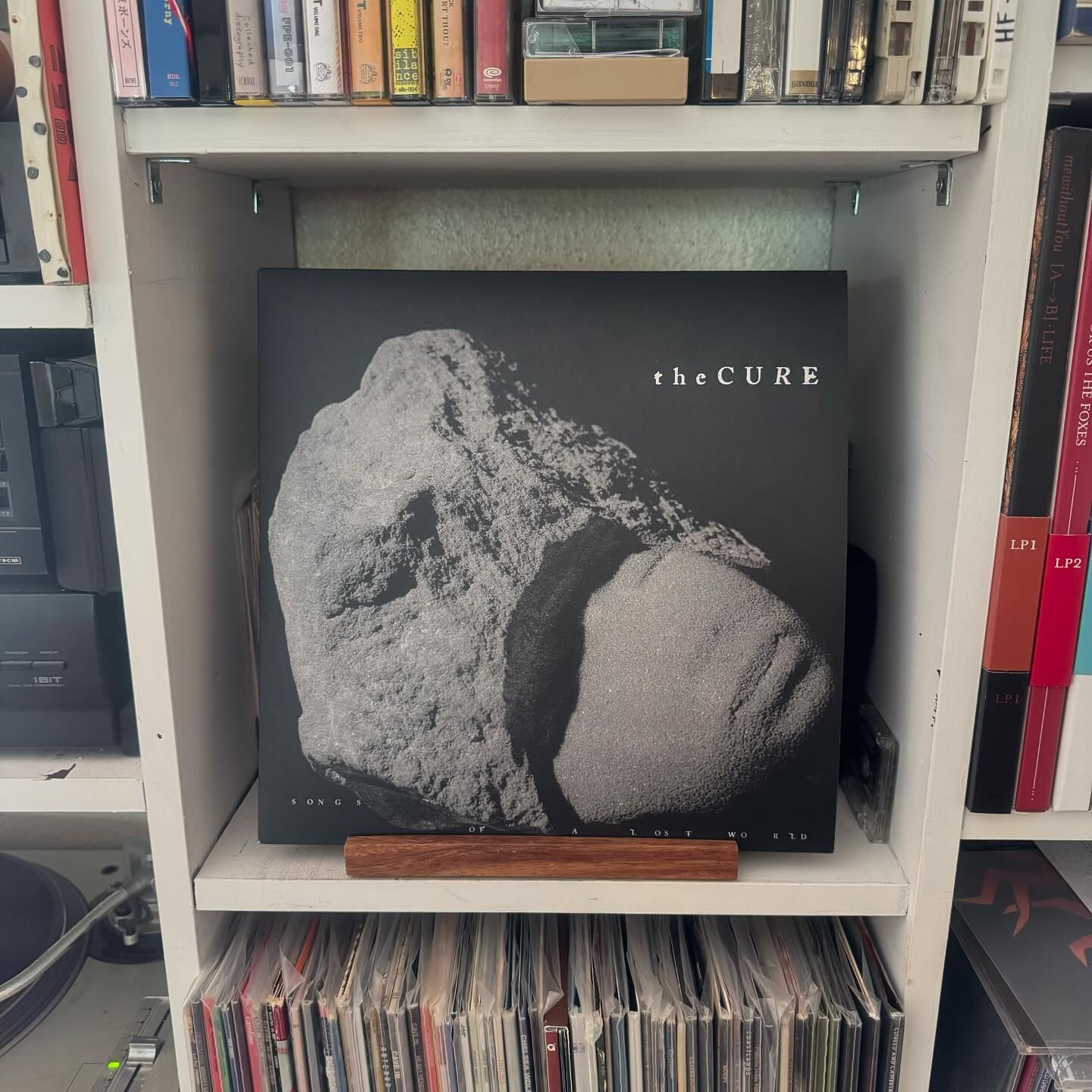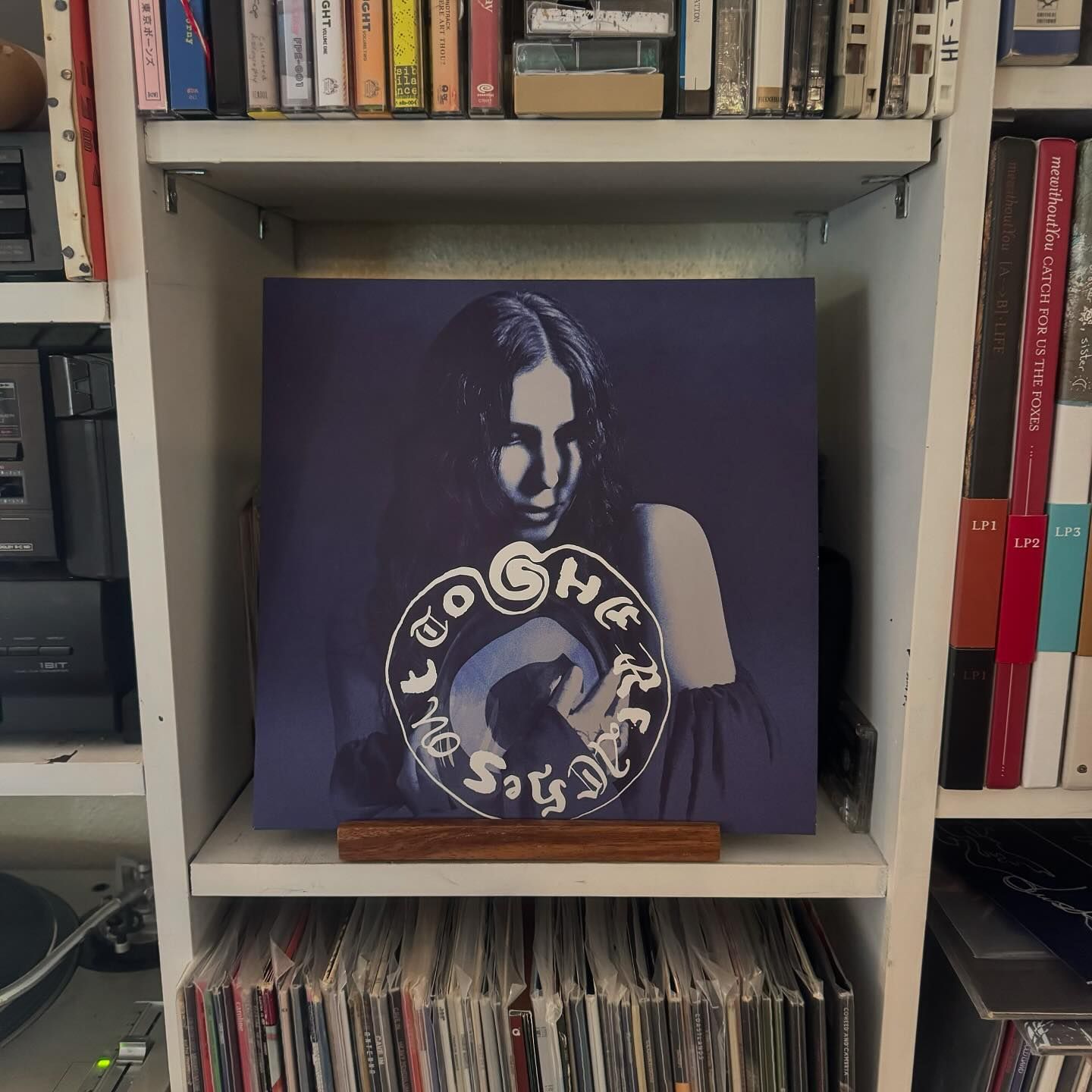 Among all of the things 2024 was, it was personally the busiest year of my life. Between raising a toddler, organizing three festivals, managing major renovation projects, and a three month phase where I listened to nothing but U2, I was probably the most detached from the new release landscape than I’ve been in a long time.
Among all of the things 2024 was, it was personally the busiest year of my life. Between raising a toddler, organizing three festivals, managing major renovation projects, and a three month phase where I listened to nothing but U2, I was probably the most detached from the new release landscape than I’ve been in a long time.
Still, there were several albums that had a huge impact on me—even if I was listening to The Unforgettable Fire, Achtung Baby, or the Frozen soundtrack on repeat between them. Here’s the tops.
1. The Cure – Songs of a Lost World
Last year, after thirty-six years of respectful unfamiliarity, I became a massive Cure fan. And boy, was that well timed or what? Because this year, Robert Smith’s annual promise of a new album actual bore fruit—and it is a masterpiece nearly on par with Disintegration itself.
While The Cure is often synonymous with adolescent angst, Songs From a Lost World is a poignant, crushing statement on the ravagings of Age. And as my entrance into middle age has me reflecting on my own mortality, this album has been in constant rotation since it was released (and yes, I stayed up Halloween night to listen to it).
2. Alcest – Les Chants d’Aurore
Alcest has been offering up spiritually-tinged blackgaze since before there was a word for it (their debut EP turns 20 this year, btw), but this year’s effort was practically religious. On my first listen, I said to a friend, “this is what Hillsong United thinks their doing.” To be clear, I was merely talking about their respective skills in wearing thin the veil between worlds.
And in that regard, Alcest is the clear winner. Their patented blend of shoegaze textures, post rock cinematics, and black metal cacophony has been co-opted by legions of imitators, but Les Chants d’Aurore demonstrates that there’s nothing like the original. While this might not be Alcest’s best record (it might be though), it’s handily their most gorgeous.
3. Glassing – From the Other Side of the Mirror
On their fourth record, Glassing elevates their mercurial blend of black metal, hardcore, post rock, and screamo to yet another level. Their juxtaposition of contrasting elements is done with a fluency few acts ever achieve. They balance heaviness, atmosphere, dissonance, and melody with subliminal precision.
But they’ve never been more masterful than on From the Other Side of the Mirror. Another massive statement from a band that’s already made quite a few.
4. Pedro the Lion – Santa Cruz
When David Bazan announced his series of autobiographical Pedro the Lion records based on cities he’s lived in, I suspected it to go the same route as Sufjan Stevens’ 50 States project. But after dropping a third record in a five year span, it seems like he’s for cereal.
In this stage of his autobiography though, we see young David further chasing his love of music and discovering that people might actually think he’s kinda cool. And as someone whose self-actualization as a teenager came as a result of his own blossoming love of music, it resonates especially strong with me.
5. State Faults – Children of the Moon
For all the hype State Faults have had the last decade, I totally missed them until finding a cheap copy of Resonate/Desperate last year. So I was primed and ready for Children of the Moon, and it did not disappoint a mite. The California outfit paired their cathartic brand of skramz with bits of post rock, prog, and emo. The result is an hour-long opus that was as beautiful as it was devastating.
6. Blood Incantation – Absolute Elsewhere
Psych-death heroes Blood Incantation are no strangers to bending genres, but Absolute Elsewhere is their most kaleidoscopic work yet. Across two massive tracks, the Denver metallurgists weave between death metal, Krautrock, prog, and psychedelic. Where this sort of genre hopping is often scatterbrained and gimmicky, Absolute Elsewhere has such a great clarity of purpose that you might feel your third eye winking.
7. Touché Amoré – Spiral in a Straight Line
2024 was also the year I finally got into Touché Amoré. And while I spent much of the year catching up on their back catalog, their newest record is another staggering entry to their impressive catalog—and let’s be clear, following the Hat Trick of Is Survived By, Stage Four, and Lament with anything that didn’t immediately deflate under impossible expectations would be a tricky task. Spiral does far more.
8. Frail Body – Artificial Bouquet
Speaking of aggressive projects with very public grieving processes… Artificial Bouquet is every bit as desperate and exuberant as screamo can get, with a glorious technicolor hue over a genre that usually films in monochrome. Plus, this might be my favorite bass guitar record of the year.
9. Chelsea Wolfe – She Reaches Out to She Reaches Out to She
Having come to Chelsea Wolfe through her heavier records, I was taken aback by the mostly electronic sonic palette of She Reaches Out. But Wolfe’s mastery of aura (aided by longtime producer/band member Ben Chisholm) gives this record a very similar mood, even as different as they sound. Icy synths and metallic drum machines create a record that contains elements of post punk, industrial, and electro. It gets a bit Bjorky at times, and that’s a good thing.
10. Pallbearer – Minds Burn Alive
After achieving the Platonic ideal of doom metal on album one, Pallbearer has very little to prove to anyone. So when they offer up an entire album of midtempo power ballads, no one is going to question their metal cred. Plus, they fit plenty if riffs in. And with the volume dialed back a little, we can hear just how great Pallbearer’s songwriting has been this whole time.
11. Blushing – Sugarcoat
No one is nailing the retro shoegaze sound like Blushing. Sugarcoat is another great record from a band that feels like they could have existed at the same time as their influences.
12. JAGALCHI -Now There Are Only Stories
It’s been a long time since I’ve found a band that makes me feel the way JAGALCHI does. Intricate post rock that leans into the storytelling potential of the genre. The fact that they’re good local friends of mine hardly factors into it.
13. Meadows – Familiar With Pain
I can’t remember when the last time I actually got in a pit was. It wasn’t any later than 2008 though. Until this year, when Meadows brought me out of mosh retirement. Their record Familiar With Pain, a concept album about Passion Week, is as thoughtful as it is hyped.
14. Respire – Hiraeth
In a year of genre-crossing, Respire once again demonstrated how special they are. In trying to describe this record, I’m tempted to coin the phrase “chamber skramz,” but I’m not sure I will.
15. The Smile – Cutouts
Radiohead masterminds Thom Yorke and Jonny Greenwood made two records with their side project The Smile this year. Flip a coin on which one was better; Cutouts was just the one that caught me a better time.
16. Arcem – Arrival At Grief
Don’t look now, but I think the best post metal record of the year came from my area. I discovered these guys after playing a basement show together, and I was blown away.
17. Dustin Kensrue – Desert Dreaming
The Thrice frontman has never kept his love of roots music a secret. Even Illusion of Safety had some twang in it. On Desert Dreaming though, he goes full outlaw country—and it’s a beautiful thing.
18. DVNE – Voidkind
It was a great year for fans of Frank Herbert’s Dune. Not only did we get an incredible movie, we also got a great record from some Akkaris-obsessed metalheads. Voidkind takes a psychedelic journey through death doom, prog metal, and sludge that you might need a Fremen guide for.
19. Blanket – Ceremonia
After falling in love with their powerful mixture of shoegaze and post metal, I was a little disappointed that its follow up was as straightforward and poppy. But Ceremonia’s grooves and hooks are too catchy to stay disappointed for long.
20. Lesser Care – Heel Turn
The second effort from the El Paso trio is an even stronger take on post-punk and shoegaze filtered through hardcore sensibilities. Plus wrestling themes!
21. Cold Gawd – I’ll Drown on This Earth
Anyone who thought their first record was all gimmick and no substance should take a listen to Cold Gawd’s second record. Shoegaze guitars are paired with hip hop production in a way that is indifferent to its own novelty.
22. Meltway – Nothing is Real
For a genre that is often color-by-numbers, this was a great year for shoegaze. Scandinavia’s Meltway exists in that sweet spot at the intersection of very noisy and very dreamy that I love.
23. Belong – Realistic IX
Thirteen years after dropping the masterpiece that is Common Era, its follow up shifts a bit back to the more nebulous drone of their earlier days. But Belong punctuates the atmospheres with proper songs to keep from getting too formless.
24. Night Verses – Every Sound Has a Color in the Valley of Night
I don’t usually go for this kind of prog metal, but Night Verses manage to be acrobatic and impressive without being needlessly difficult.
25. My Epic – Loriella
Since the twin EPs of Ultraviolet and Violence, I have been eagerly awaiting a new My Epic album. Loriella mixes heavy riffs with emotional melodies and tender songwriting. There’s no question in my mind that if they weren’t as overtly religious, they would be one of the biggest post-hardcore bands around right now.
26. mewithoutYou – Live (vol. 1)
Of course I had to include this one. While I generally don’t care much for live albums, mewithoutYou’s live show was its own monster. And with the band hanging it up recently, this live record (the first of three volumes) takes a bit of the pain away.
Honorable Mentions
Big Brave – A Chaos of Flowers
Chappel Roan – The Rise and Fall of a Midwest Princess
Driftless – Perfect Blue
Dua Lipa – Radical Optimism
Heriot – Devoured by the Mouth of Hell
Sabrina Carpenter – Short and Sweet
Thou – Umbilical
U2 – Achtung Baby/Zooropa/Pop (might as well call them new releases for me)
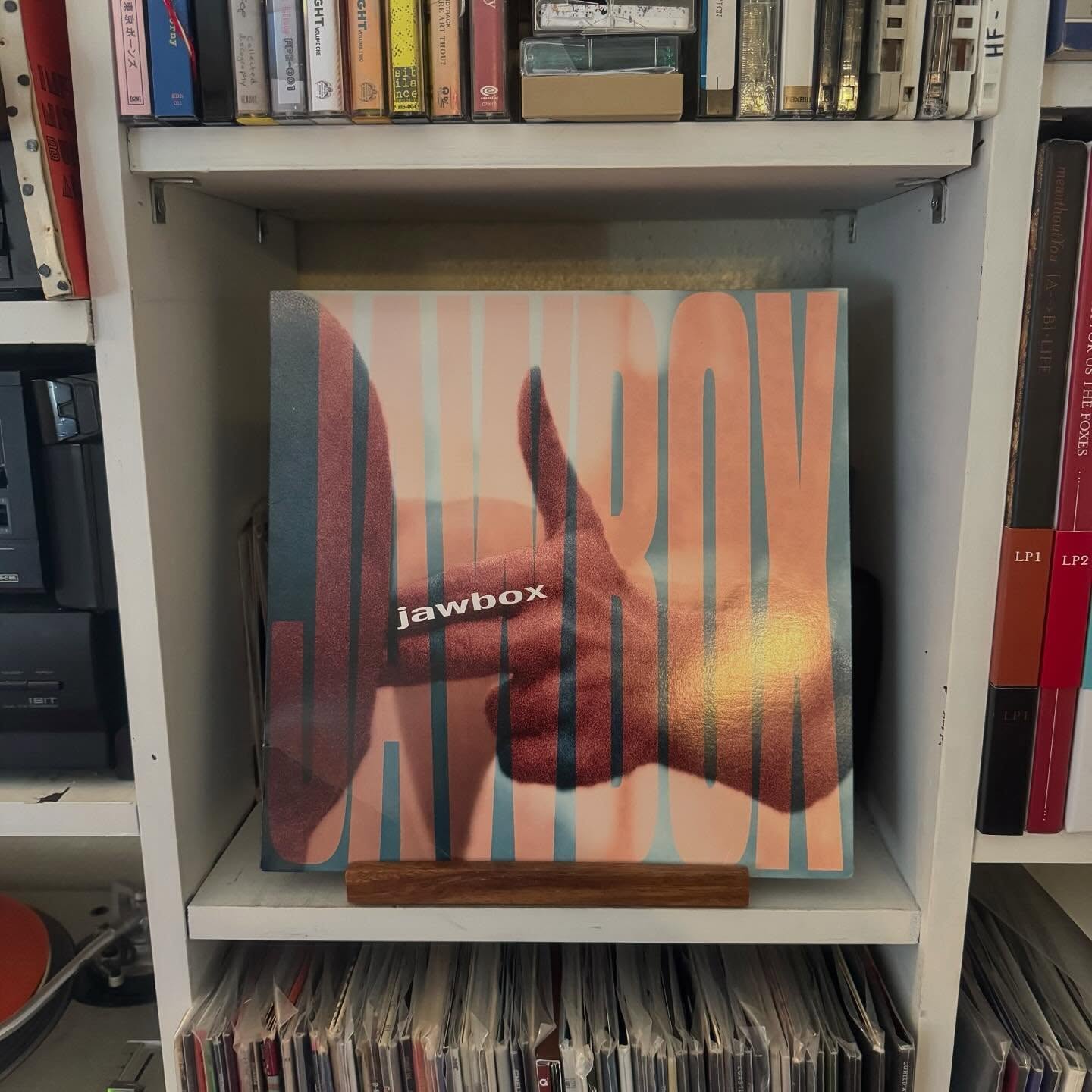 Speaking of the DC post-hardcore scene…
Speaking of the DC post-hardcore scene…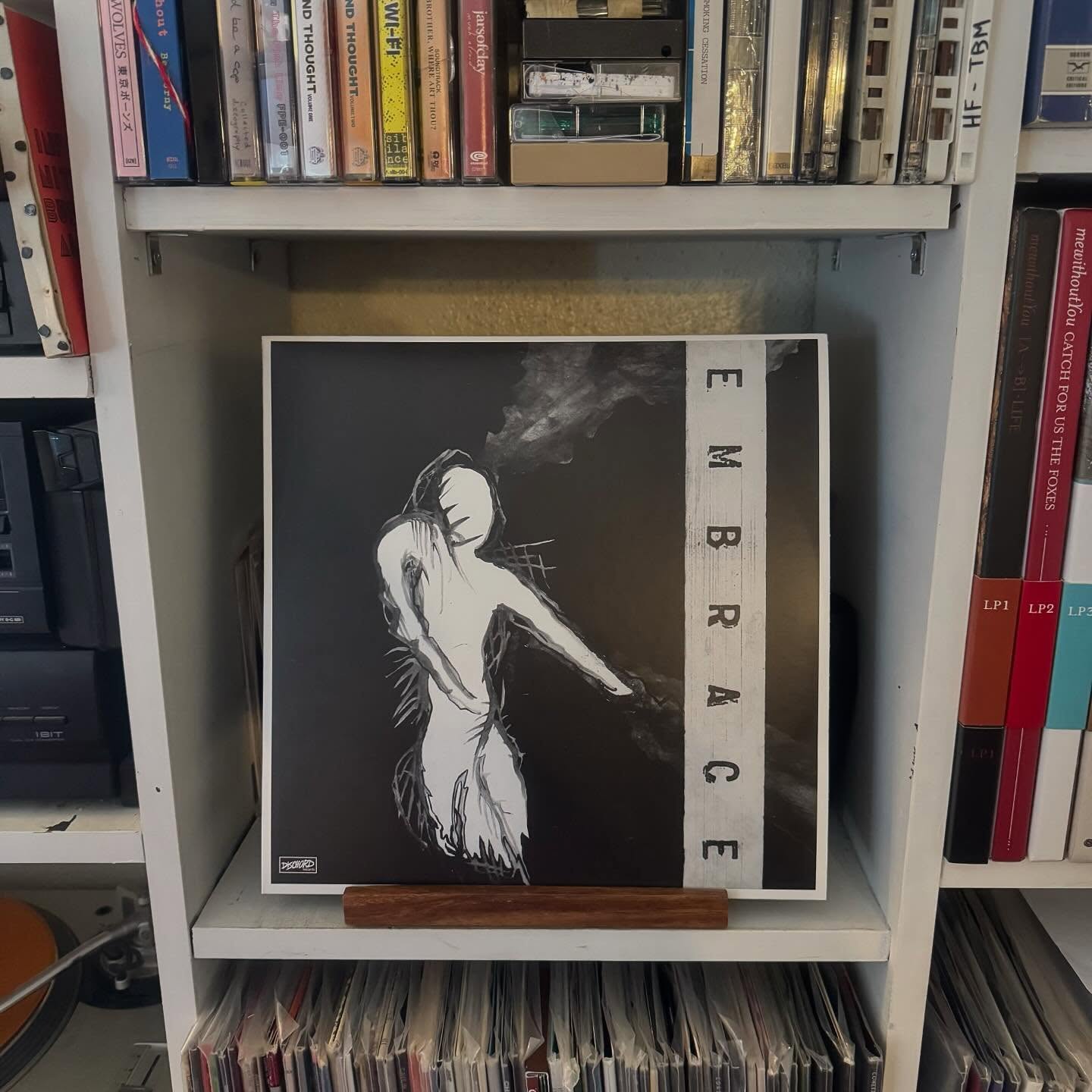

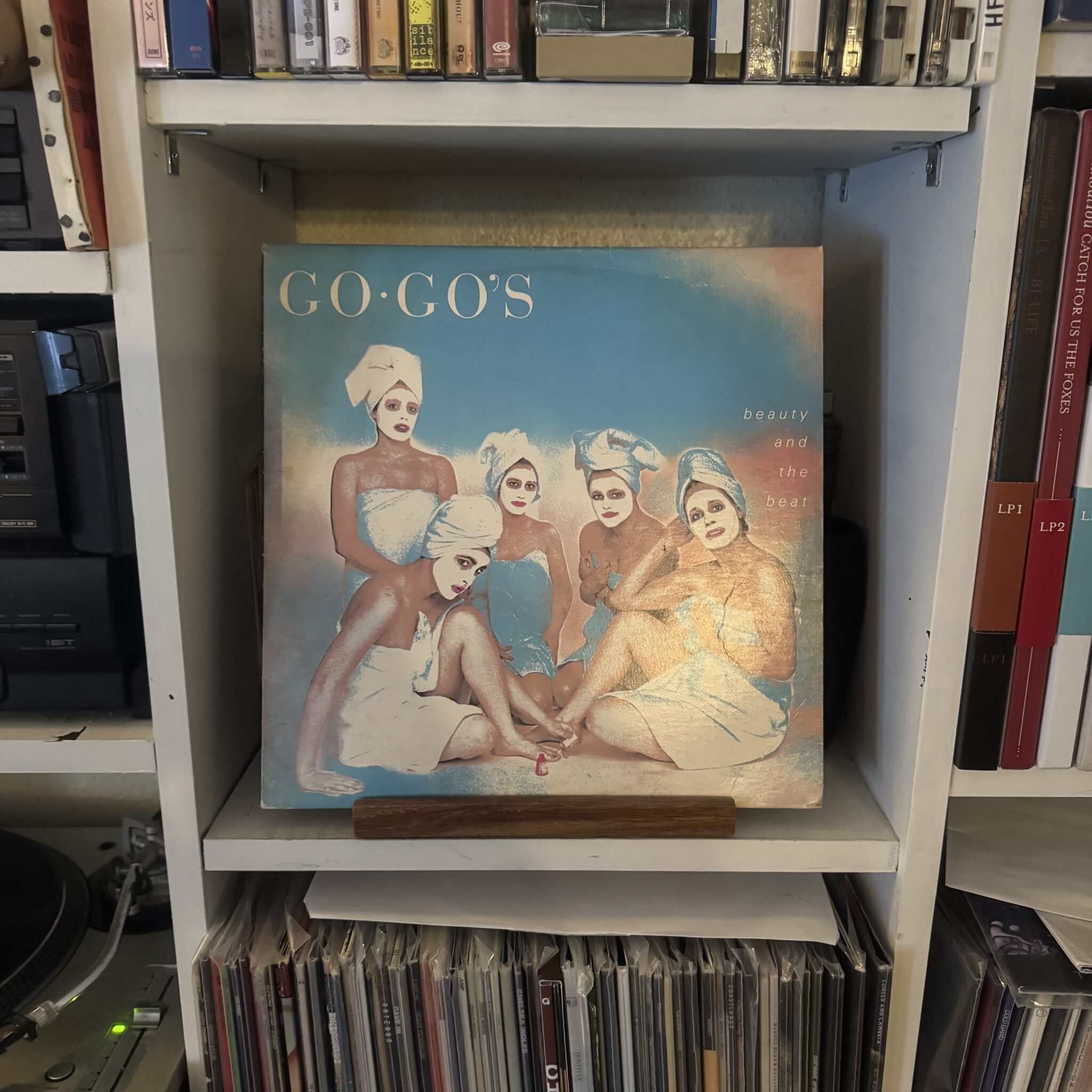 The mythos of rock and roll party culture is almost as significant to pop music history as the music itself. And while no one is caught off guard to hear about acts of depravity from Guns & Roses or Mötley Crüe, it comes as a surprise to most people that one of the most notoriously wild acts of the 1980s was none other than The Go-Go’s.
The mythos of rock and roll party culture is almost as significant to pop music history as the music itself. And while no one is caught off guard to hear about acts of depravity from Guns & Roses or Mötley Crüe, it comes as a surprise to most people that one of the most notoriously wild acts of the 1980s was none other than The Go-Go’s. Among all of the things 2024 was, it was personally the busiest year of my life. Between raising a toddler, organizing three festivals, managing major renovation projects, and a three month phase where I listened to nothing but U2, I was probably the most detached from the new release landscape than I’ve been in a long time.
Among all of the things 2024 was, it was personally the busiest year of my life. Between raising a toddler, organizing three festivals, managing major renovation projects, and a three month phase where I listened to nothing but U2, I was probably the most detached from the new release landscape than I’ve been in a long time.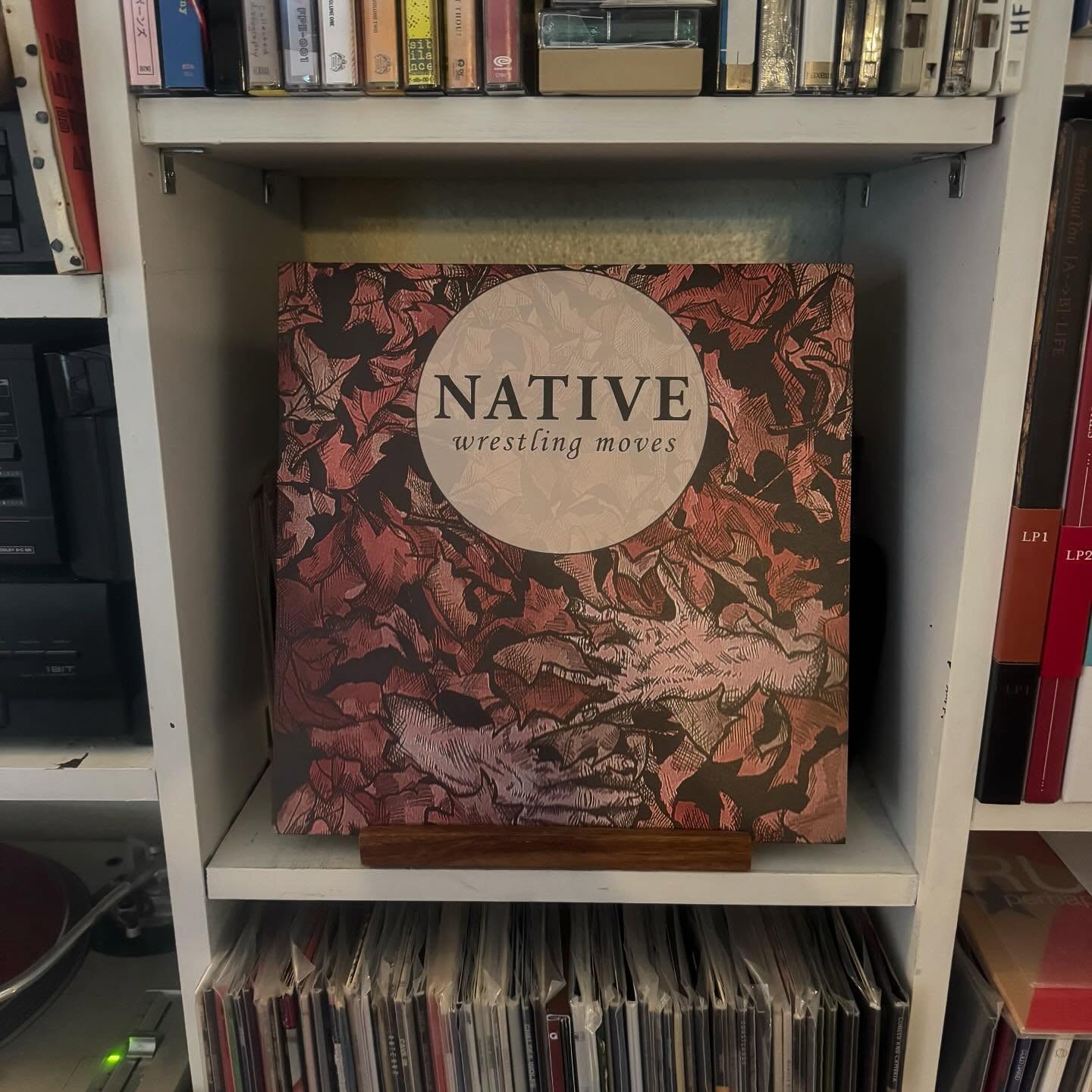
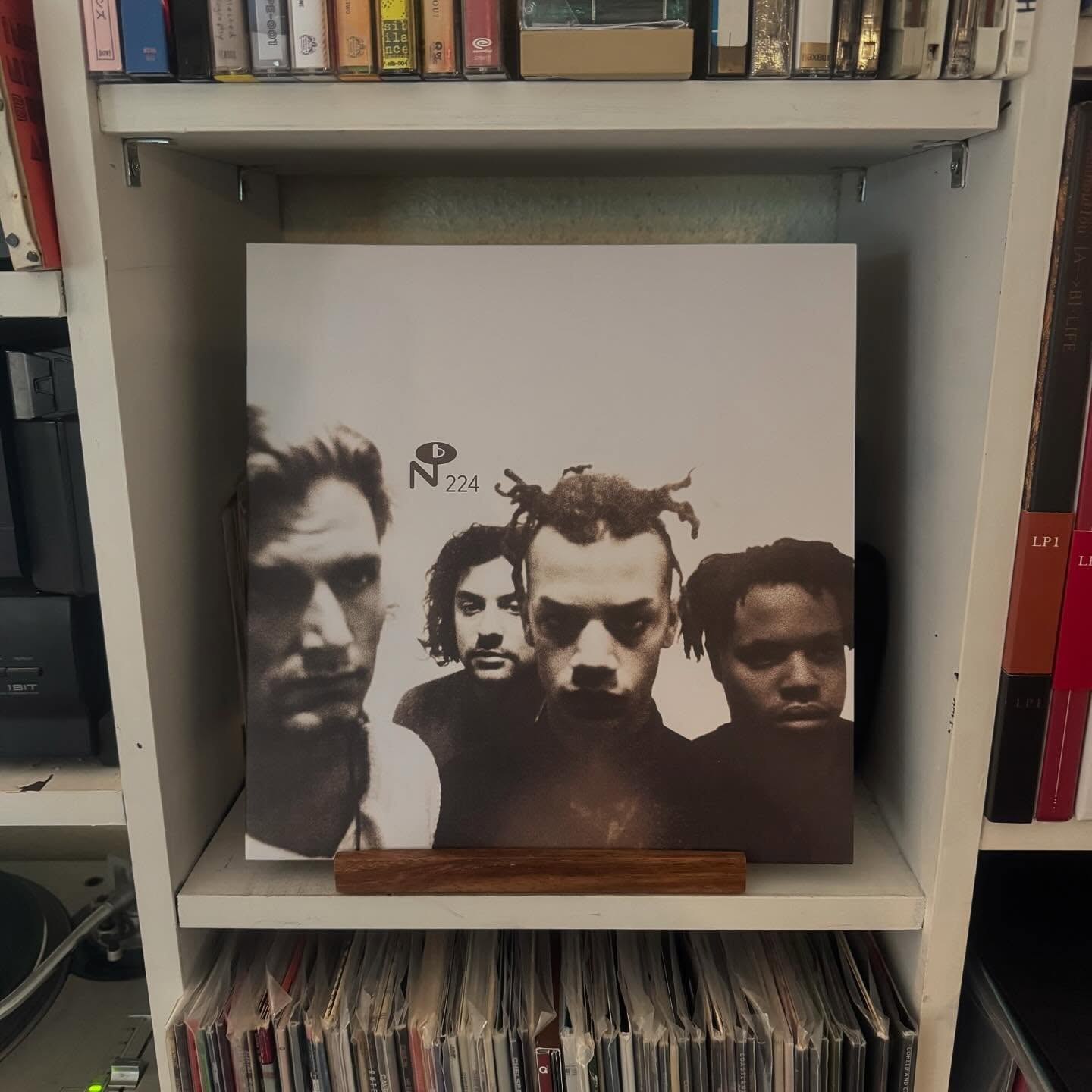 No matter how closely I scour the various corners of pop music history, there’s always something I miss. There are countless bands that have fallen through the cracks of year-end lists from various journalists, retrospectives, and trends on the music charts. And many of those bands are actually worth several damns, despite how much or little notoriety they achieved in their time.
No matter how closely I scour the various corners of pop music history, there’s always something I miss. There are countless bands that have fallen through the cracks of year-end lists from various journalists, retrospectives, and trends on the music charts. And many of those bands are actually worth several damns, despite how much or little notoriety they achieved in their time.